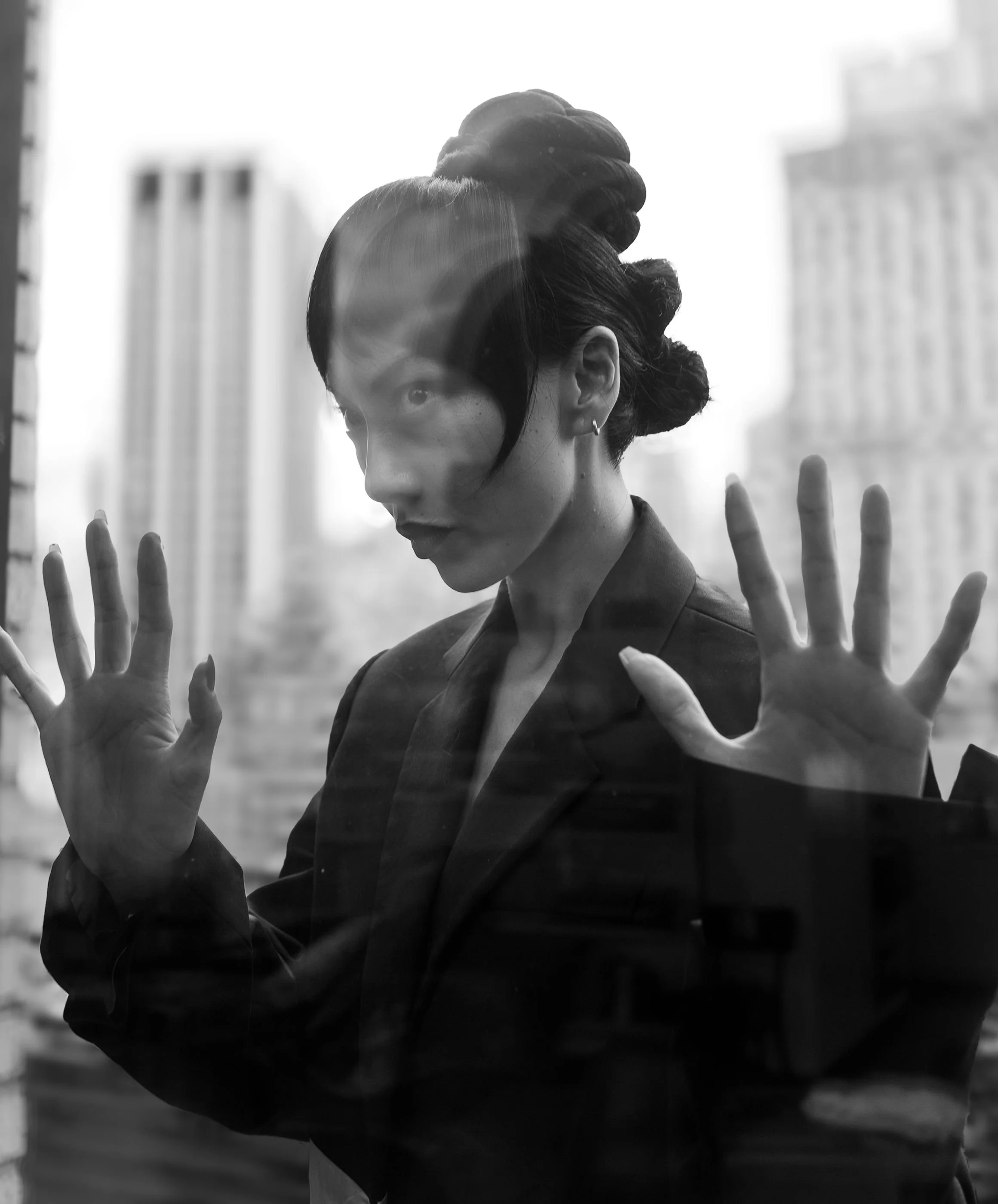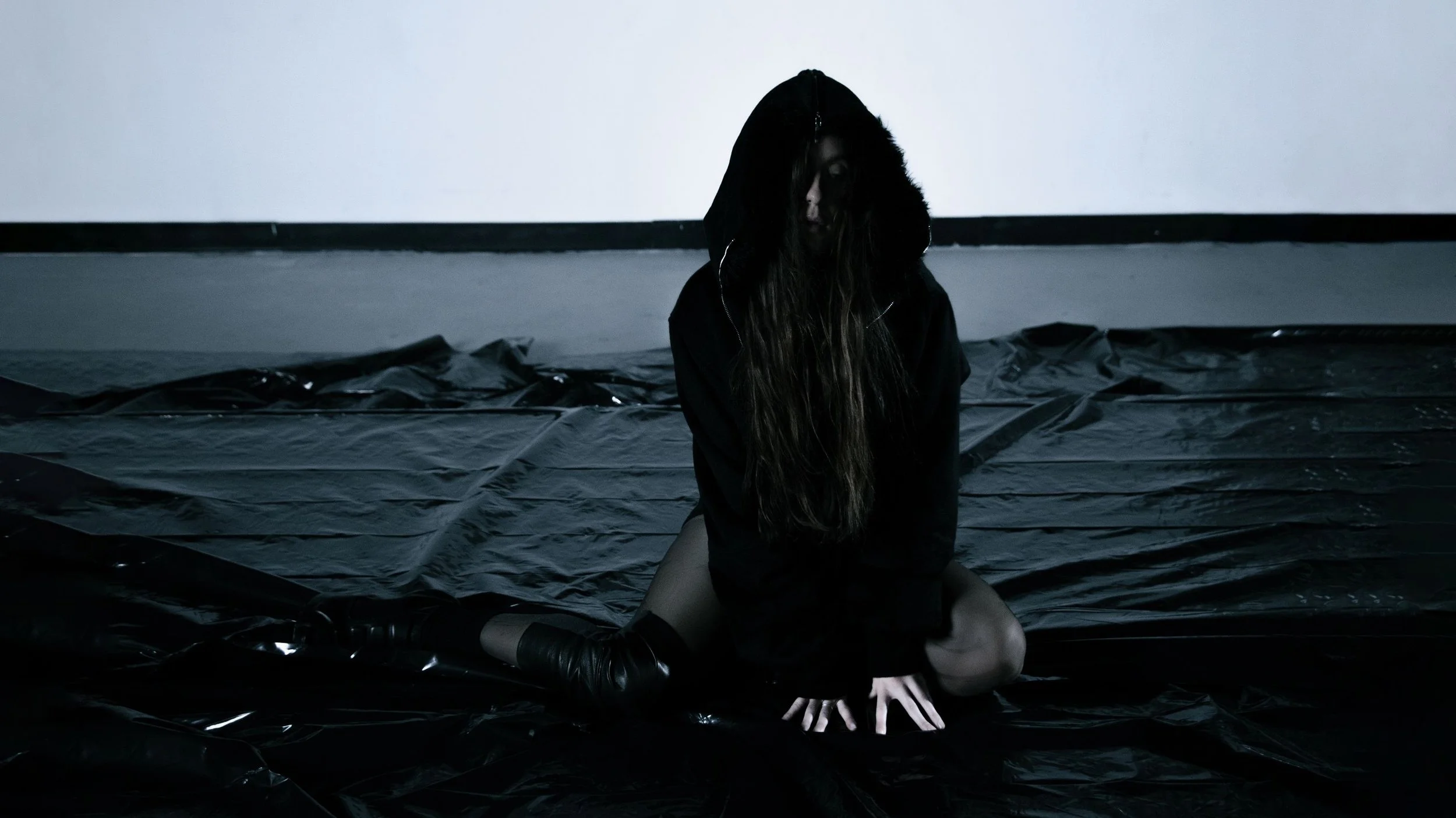YESHE
YESHE presents Pretty Perfect walking through invisible spaces, her movements measured, deliberate, and emotionally charged. The visual minimalism reflects the music’s intimacy and urgency. Yumna Al Arashi and YESHE allowed rhythm and gesture to shape a space where solitude, survival, and persistence became tangible. The song itself emerges from impermanence, memory, and emotion stripped to their essence. DUST conveys ancestral stories, exile, and daily life while affirming joy and endurance. Collaborators are chosen for shared vision and resonance, fostering kinship rather than calculated strategy.
Pretty Perfect is visually restrained yet emotionally charged, placing you in what feels like a timeless, undefined space. How did you and Yumna Al Arashi shape the narrative of solitude, survival, and persistence in this video?
When I played the track for Yumna, her first response was, “I see you walking… and never stopping.” That image set everything in motion. From there, we trusted that rhythm and created a space that felt both grounded and undefined. We were interested in the tension between the song’s emotional drive and the steady, almost effortless walk through a seemingly empty space. I think that’s where the themes of solitude, survival, and persistence could take shape and become present naturally.
The song emerges as both intimate and universal. What personal experiences informed its writing, and how do you see it speaking to broader collective histories?
Aska Matsumiya sent me these chords, and the melody came as a reminder that nothing lasts forever — not pain, not joy, not even the body. I wrote it from that stripped-down place of nothingness, holding on to love and memory. It feels like both a confession and a universal urge to cling to what can’t quite be touched — a feeling that I think many can relate to.
Much of your work draws from the Tibetan diaspora experience. How do you keep the balance between preserving ancestral voices and translating them into a contemporary, global sound?
There’s no need to balance preservation and translation - I am the balance. The ancestral voices are always with me, in the melodies my mother sang and the stories my grandmother told us. When I write or perform, I don’t try to translate them into something contemporary; instead, I focus on transporting the feelings and emotions I carry within me. In that sense, my music isn’t about preservation, but about continuation - carrying forward the sound that’s already part of me, into the present moment, every time I sing.
Your debut album DUST resists the idea of music as entertainment alone, positioning it as testimony and resistance. What did you want listeners to confront or carry with them after engaging with the record?
With DUST, I aim to turn up the volume on the voices that have been, and still are, silenced or erased every day. The songs carry traces of my grandmother’s imprisonment in Tibet, my family’s immigration experiences, everyday life in exile, but also the stubborn joy and beauty that endure alongside. I want music to carry the power to fight back. The record invites listeners into that tension — the weight of resilience, and the potential of dancing with it.
Collaboration has been important to your process, from Asma Maroof and Chino Amobi to Dreamcrusher and Tapiwa Svosve. What criteria or intuition guides you in choosing your collaborations?
I follow resonance and synergy, not strategy. There needs to be mutual interest and trust in each other’s visions and skills. Ideally, collaboration feels like finding kinship with someone equally “stubborn” about their vision.
Your presence in fashion, from Miu Miu to Collina Strada, suggests another arena where you articulate identity. How does performing in that context compare with the stage or the gallery?
In fashion, I’m part of the stage and what I wear is the music. On stage, it’s the other way around: I’m the music and what I wear becomes part of the stage.
You recently performed at the Rubin Museum in a durational piece co-curated by Marina Abramović. How has performance art influenced the way you approach your music and live presence?
Working with Marina — from Cleaning the House at her home in upstate New York to creating the piece with her and Billy Zhao — was transformative. She is a sharp storyteller, funny and generous, and precise in her questions. The whole process shifted how I think about presence, both vocal and physical. I learned to stretch time, to hold space, to perform an attitude with or without movement — and to trust that staged silence can be as powerful as sound.
Pretty Perfect carries both grace and endurance. Do you view it as a personal statement, a cultural one, or both?
Grace and endurance — that’s something I wish for everyone who knows what it means to be held down. But I don’t like to think of it as a statement. It’s a rhythm, a melody, and an energy that suggests moving forward steadily and gracefully against all odds.
Looking ahead, how do you see your work evolving, do you imagine the next chapter continuing to draw from the diaspora, or opening new narratives entirely?
I’d like to answer with a quote from Grace Jones:
““If you are a fan of doing the unexpected, and I am, then it is an advantage to be highly skilled at changing your mind. If you do not want to limit yourself, then be prepared to change your mind, often.” ”
Interview by DONALD GJOKA
What to read next










